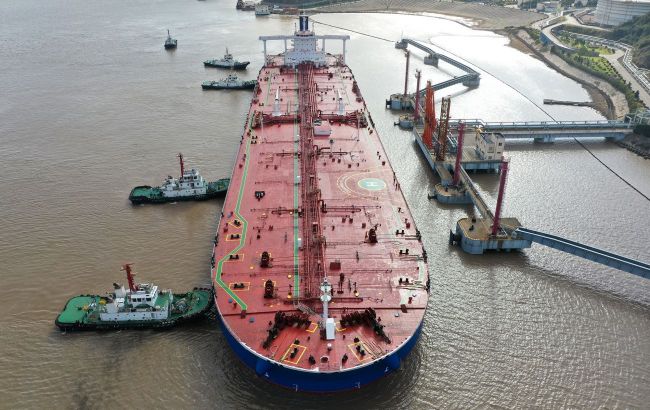EU eyes tougher controls on Russia's shadow fleet with ship-boarding powers - Politico
 Illustrative photo: EU moves to target Russia's shadow fleet (Getty Images)
Illustrative photo: EU moves to target Russia's shadow fleet (Getty Images)
The European Union wants to take stronger action against tankers of Russia's shadow fleet. Authorities could be granted the power to board ships and carry out inspections, Politico reports.
Politico, referring to a draft document prepared for the EU Foreign Ministers' meeting on October 20, writes that the EU aims to allow boardings of shadow fleet vessels for inspections.
These tankers transport Russian oil under "different flags," which theoretically prevents their seizure. But the EU considers these vessels a threat to the environment and maritime safety.
In addition, shadow fleet ships could pose a risk to NATO countries' critical infrastructure. They might be used as platforms for hybrid attacks. For example, Russian drones spotted over several European countries may have been launched from such tankers.
EU plans
The European External Action Service has initiated discussions on a draft declaration to strengthen the framework of international maritime law. Law enforcement agencies in EU countries could board shadow fleet tankers and conduct inspections.
"Possible bilateral agreements between the flag states and the EU on pre-authorized boardings for inspections," the draft notes.
The declaration is expected to be finalized by the end of November and adopted at the next EU Foreign Ministers' meeting. After that, the EU's top diplomat, Kaja Kallas, will negotiate with countries whose flags Russian vessels sail under.
The goal is to provide the EU with another tool to counter the shadow fleet, complementing current efforts with flag states and neutral coastal countries.
"Panama, the largest ship registry, has agreed to deregister vessels sanctioned by the EU and recently decided to stop registering vessels older than 15 years," Politico also reported, citing the draft.
Russia's shadow fleet
The Russian shadow fleet has grown to massive proportions. About one in six tankers worldwide is part of it, roughly 17% of all active tankers. In 2025, the number of tankers increased by 45%, reaching 940 vessels.
This aligns with estimates from Ukraine's Defense Intelligence (HUR). They reported that the shadow fleet now includes up to 1,000 vessels. Recently, Ukrainian intelligence released data on hundreds of tankers and the captains of the fleet.
Most are old tankers that have exceeded their service life and operate under neutral flags. Beyond environmental harm and circumventing oil sanctions, these ships pose other risks.
Specifically, these tankers are believed to serve as platforms for hybrid attacks on Europe. This version has also been confirmed by Ukrainian authorities.

